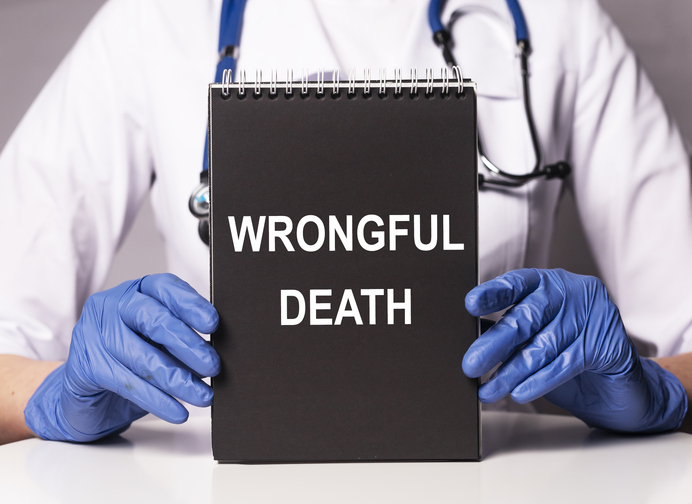When tragedy strikes and a loved one’s life is cut short due to another party’s negligence or misconduct, the grief can be overwhelming. Beyond the emotional toll, families are often faced with practical, legal, and financial questions they never expected to confront. This is where wrongful death law steps in — a legal framework designed to provide some measure of accountability and compensation in the face of devastating loss.
What Is Wrongful Death?
Wrongful death is a civil legal action that arises when an individual dies as the result of another person’s or entity’s negligence, recklessness, or intentional misconduct. Unlike criminal cases — which are brought by the state and can result in imprisonment or fines — wrongful death claims are filed by surviving family members or representatives of the deceased’s estate.
Examples of wrongful death cases include:
-
Fatal car accidents caused by a drunk or distracted driver
-
Medical malpractice resulting in preventable death
-
Defective products, such as unsafe medical devices or faulty vehicle parts
-
Workplace accidents due to inadequate safety measures
-
Nursing home neglect or abuse leading to death
The Legal Information Institute at Cornell Law School defines wrongful death as a legal action that compensates survivors for damages sustained due to the death of another, underscoring its civil—not criminal—nature.
Who Can File a Wrongful Death Claim?
Every state has its own laws governing wrongful death actions, and eligibility varies depending on jurisdiction. Generally, the following parties may have standing to file:
-
Immediate family members such as spouses, children, or parents of unmarried children
-
Financial dependents or life partners in some states
-
In certain cases, extended family (siblings, grandparents) or executors of the estate
For example, California Code of Civil Procedure §377.60 outlines exactly who may bring a wrongful death action. Other states restrict claims more narrowly. Knowing who has standing is essential to avoid procedural dismissal.
What Damages Are Recoverable?
A successful wrongful death claim seeks to compensate surviving family members for both economic and non-economic losses. Common categories include:
-
Medical expenses related to the final injury or illness
-
Funeral and burial costs
-
Loss of financial support the deceased would have contributed
-
Loss of household services (e.g., childcare, maintenance, caregiving)
-
Loss of companionship, guidance, or consortium
-
Emotional suffering endured by survivors
The National Safety Council notes that preventable injuries remain one of the leading causes of death in the United States. These statistics highlight the financial and societal stakes of wrongful death litigation.
In particularly egregious cases, courts may award punitive damages, which are designed to punish wrongdoing and deter future misconduct.
The Burden of Proof
It is worth emphasizing that wrongful death is a civil matter, meaning the burden of proof is different from criminal trials. While a criminal case requires proof “beyond a reasonable doubt,” civil wrongful death claims must generally meet the standard of a preponderance of the evidence — meaning it is more likely than not that the defendant’s actions caused the death.
This distinction explains why a defendant acquitted in criminal court can still be held liable in a civil wrongful death lawsuit. The O.J. Simpson civil case remains the most well-known example of this principle in action.
Statutes of Limitation
Time is a critical factor in wrongful death claims. Every state sets its own statute of limitations, or deadline, by which a lawsuit must be filed. In many jurisdictions, this period is two years from the date of death, though the exact time frame varies. For example, the Georgia Code § 9-3-33 sets a two-year statute of limitations for wrongful death actions, with exceptions in cases such as ongoing criminal prosecution.
Failing to act within the prescribed window usually results in the claim being barred permanently, underscoring the importance of prompt legal consultation.
Broader Implications of Wrongful Death Law
Wrongful death law does more than provide financial compensation. It serves as a mechanism for accountability — ensuring that negligent individuals, companies, or institutions face consequences.
For instance, wrongful death claims related to defective consumer products have led to recalls and improved safety standards. Claims against hospitals and doctors have spurred procedural reforms to reduce malpractice. Workplace lawsuits have influenced stricter OSHA standards designed to keep employees safer.
In short, while no amount of compensation can bring a loved one back, wrongful death litigation often prevents future tragedies by forcing systemic change.
Resources for Families
Families seeking guidance can find valuable information from:
These resources offer a broader context on the prevalence of preventable deaths and the legal measures designed to address them.
Seeking Justice While Honoring a Legacy
Wrongful death law exists at the intersection of grief, justice, and accountability. For families, it offers not only the possibility of financial relief but also the assurance that someone is held responsible. For society, it reinforces the principle that negligence and misconduct carry real consequences.
For families in Georgia navigating these issues, having trusted legal guidance is invaluable. Firms likeThe Rodd Firm in Valdosta, GA provide compassionate support while helping survivors pursue the justice and accountability they deserve.


